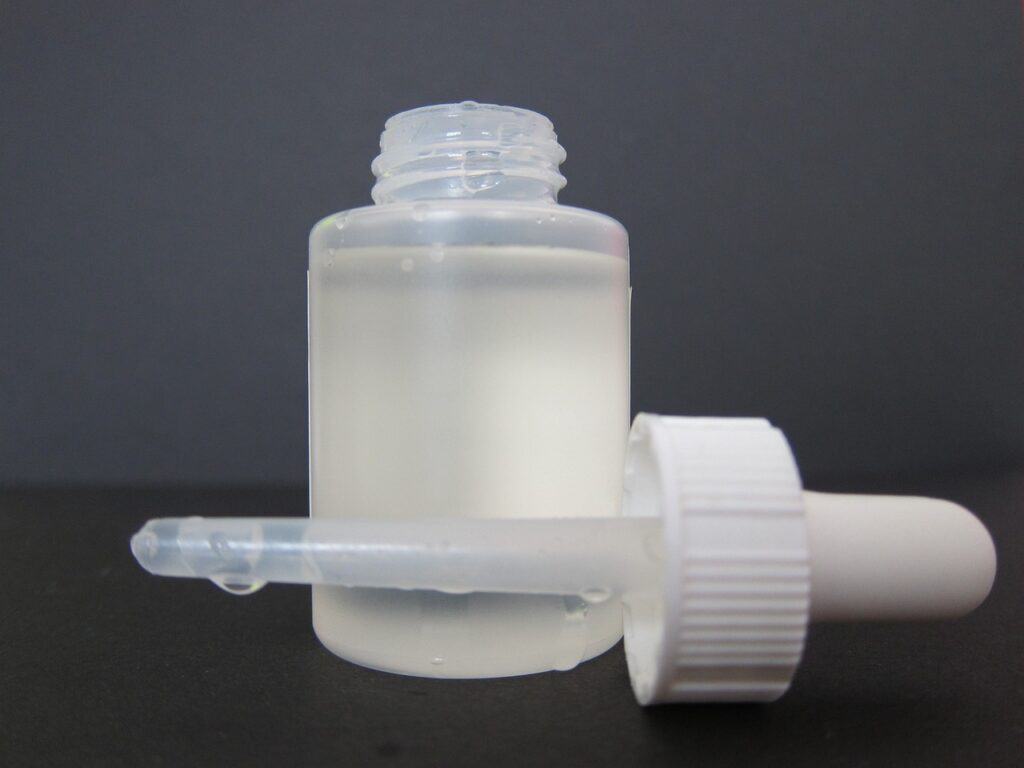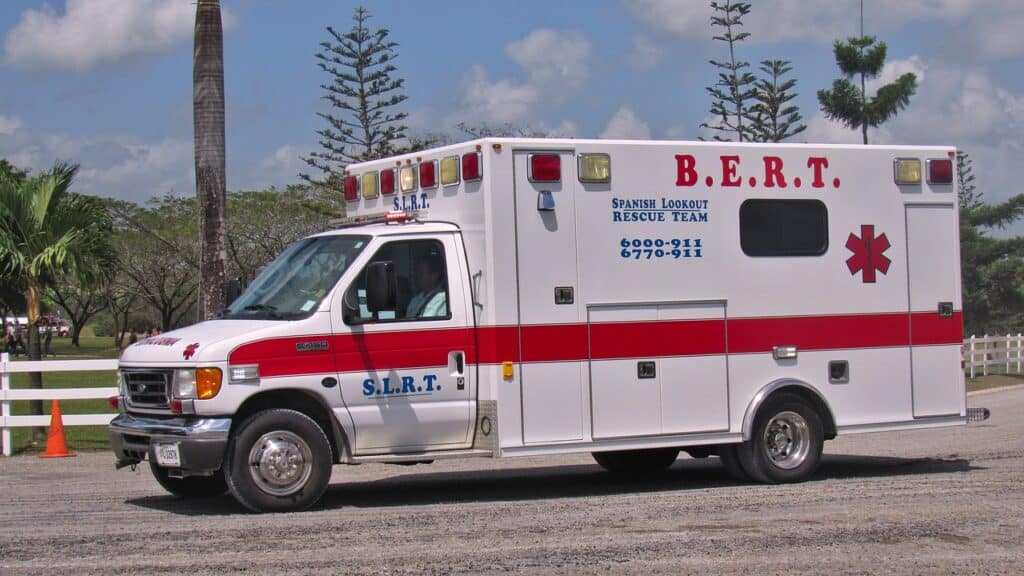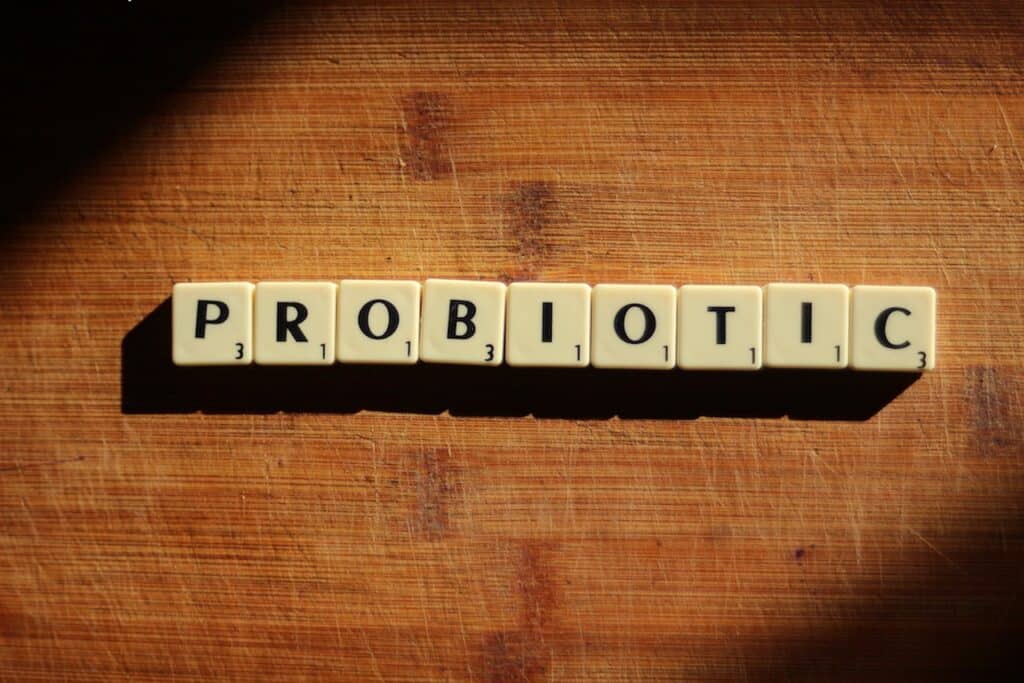Gas drops are a common remedy for gassy babies, but what happens when a parent accidentally gives their baby too much? This can be a scary situation for any parent, but it’s important to understand the potential risks and how to prevent it from happening in the future.
Understanding the appropriate use of gas drops is crucial for any parent with a gassy baby. While gas drops can provide relief for a baby experiencing discomfort, it’s important to use them as directed and not exceed the recommended dosage. Giving a baby too much gas drops can lead to potential side effects and even overdose.
If you’ve accidentally given your baby too much gas drops, it’s important to take action immediately. While most cases do not result in serious harm, it’s important to know the signs of overdose and when to contact poison control. It’s also helpful to know alternative remedies for relieving gas in babies to prevent this situation from happening again in the future.
Key Takeaways
- Gas drops can be a helpful remedy for gassy babies, but it’s important to use them as directed to prevent potential side effects and overdose.
- Accidentally giving a baby too much gas drops can be a scary situation, but knowing the signs of overdose and when to contact poison control can help prevent serious harm.
- Alternative remedies for relieving gas in babies can be helpful in preventing accidental overdoses of gas drops.
Understanding Baby Gas
Gas is a common issue that many babies experience. It occurs when gas bubbles get trapped in the baby’s digestive system, causing discomfort and pain. Gas pain can be quite distressing for babies, making them fussy and irritable.
There are several reasons why babies get gas. One of the primary reasons is the intake of excess air while feeding. When babies feed, they tend to swallow air along with the milk or formula, which can lead to gas. Additionally, some babies may have difficulty digesting certain types of food, leading to gas formation.
The symptoms of gas in babies can vary, but some common signs include fussiness, crying, and restlessness. Babies may also have trouble sleeping or feeding, and they may pass gas frequently. In some cases, babies may even develop a bloated stomach or have difficulty passing stool.
To help alleviate gas pain in babies, there are several things that parents can do. One of the most effective ways is to burp the baby after feeding. This helps to release any trapped air in the baby’s digestive system. Additionally, parents can try massaging the baby’s tummy in a clockwise motion to help move the gas along.
There are also over-the-counter remedies available, such as gas drops, that can help to relieve gas pain in babies. However, it is important to use these products as directed, as giving too much can be harmful. If a baby is experiencing severe gas pain or other symptoms, it is important to seek medical attention.
Overall, understanding baby gas and its causes can help parents take steps to prevent and alleviate gas pain in babies. By following simple techniques like burping and massaging, parents can help their babies feel more comfortable and content.
Causes of Infant Gas
Infant gas is a common problem that many parents face. The causes of infant gas can vary and may be related to feeding, formula, breastfeeding, milk, lactose, dairy products, dietary sensitivities, poor latch, bottle feeding, vegetables, breastfed baby gas, paced bottle feeding, and allergies.
One of the most common causes of infant gas is feeding. Babies who are fed too quickly or who swallow too much air during feeding can experience gas. This can be especially true for bottle-fed babies who may not have a good latch or who are not being paced during feeding.
Formula and breast milk can also be a cause of infant gas. Some babies may have trouble digesting certain types of formula or breast milk, which can lead to gas. Lactose intolerance and dairy product sensitivities can also cause gas in infants.
Dietary sensitivities may also be a cause of infant gas. Some babies may be sensitive to certain foods in their mother’s diet, which can be passed on through breast milk. Vegetables, such as broccoli and cauliflower, can also cause gas in infants.
A poor latch during breastfeeding can also cause gas in infants. When a baby does not latch properly, they may swallow air during feeding, which can lead to gas.
Overall, there are many different causes of infant gas, and it may take some trial and error to determine the cause of your baby’s gas. It is important to talk to your pediatrician if you have concerns about your baby’s gas or if you notice any other symptoms.
Signs of Discomfort in Babies
Babies are not able to communicate their discomfort in words, so it is important for parents to be aware of the signs of discomfort in their babies. Some common signs of discomfort in babies include fussiness, crying, squirming, and being inconsolable.
When babies experience discomfort, they may cry more than usual, and their cries may sound different from their normal cries. They may also squirm and move around more than usual, and they may be difficult to soothe. In some cases, babies may even scream in pain, indicating that they are experiencing significant discomfort.
One common cause of discomfort in babies is colic, which is characterized by prolonged crying and fussiness, often for hours at a time. Other possible causes of discomfort in babies include constipation, gas, and acid reflux.
If parents suspect that their baby is experiencing discomfort, they should try to identify the cause of the discomfort and take steps to address it. This may involve adjusting the baby’s diet, using gas drops or other medications, or trying different soothing techniques.
In some cases, discomfort in babies may be a sign of a more serious underlying condition, such as an infection or a digestive disorder. If parents are concerned about their baby’s discomfort, they should consult a healthcare provider for guidance and support.
Gas Drops for Babies
Gas drops are a common over-the-counter medication used to relieve gas and colic in infants. The active ingredient in most gas drops is simethicone, which works by breaking down gas bubbles in the stomach and intestines, making them easier to pass.
When it comes to dosing, it’s important to follow the instructions on the packaging carefully. Infants’ Mylicon Gas Relief Drops, for example, recommend giving 0.3 mL per use, up to 12 times per day. However, it’s important to note that dosages may vary depending on the brand and formulation.
While gas drops are generally considered safe for infants, it’s always a good idea to consult with a pediatrician before giving any medication to your baby. Additionally, it’s important to only use the recommended dosage and not exceed the maximum number of doses per day.
There are various formulations of gas drops available, including original and dye-free formulas. Some brands, like Infants’ Mylicon Gas Relief Drops, are pediatrician-recommended.
Overall, gas drops can be a helpful tool in relieving gas and colic in infants, but it’s important to use them safely and as directed.
Possible Side Effects of Gas Drops
Gas drops are a common medication used to relieve gas and colic symptoms in infants. However, like any medication, gas drops can have side effects. It is important to be aware of the possible side effects in order to properly monitor your baby’s health and seek medical attention if necessary.
One of the most common side effects of gas drops is loose stool. This is because the medication contains simethicone, which helps break up gas bubbles in the stomach. As a result, the stool may become softer and more frequent. However, this is usually a temporary side effect and should resolve on its own.
Another possible side effect of gas drops is vomiting. This can occur if the baby has difficulty digesting the medication or if too much is given at once. If your baby vomits after taking gas drops, it is important to monitor their symptoms and contact a healthcare provider if the vomiting persists or is accompanied by other symptoms.
In rare cases, gas drops can cause an allergic reaction. Symptoms of an allergic reaction may include rash, hives, swelling, difficulty breathing, and vomiting. If you suspect your baby is having an allergic reaction to gas drops, seek medical attention immediately.
Some babies may also experience trouble sleeping or headaches after taking gas drops. If your baby seems agitated or restless after taking the medication, it may be best to avoid giving it to them before bedtime.
Overall, gas drops are a safe and effective medication for relieving gas and colic symptoms in infants. However, it is important to be aware of the possible side effects and to consult with a healthcare provider if you have any concerns about your baby’s health.
Alternatives to Gas Drops
Gas drops are a common remedy for infants with tummy trouble, but there are alternative methods that can be just as effective. Here are a few options to consider:
Burping
Burping your baby after feedings can help release any trapped gas in their stomach. You can try different burping positions, such as holding them over your shoulder or sitting them upright on your lap, to find what works best for your baby.
Baby Massage
Gentle massage on your baby’s tummy can help relieve gas and promote digestion. Use circular motions with your fingertips, starting at the belly button and moving outward.
Gripe Water
Gripe water is a natural remedy that can be effective in relieving gas and other tummy troubles. It typically contains a combination of herbs and other natural ingredients, such as ginger and fennel.
Probiotics
Probiotics are beneficial bacteria that can help promote healthy digestion and reduce gas and bloating. You can find probiotics specifically designed for infants in the form of drops or powders.
Tummy Time
Tummy time can help your baby develop their core muscles and relieve gas by putting gentle pressure on their tummy. Start with short periods of tummy time and gradually increase as your baby gets stronger.
Swaddling
Swaddling can help your baby feel secure and calm, which can reduce gas and other tummy troubles. Use a swaddling blanket to wrap your baby snugly, but be sure to leave their hips and legs free to move.
Upright Position
Holding your baby in an upright position can help relieve gas by allowing gravity to assist in moving the gas out of their system. You can try holding your baby on your shoulder or in a carrier that allows them to be in an upright position.
Bicycle Motion
Gently moving your baby’s legs in a bicycle motion can help relieve gas by stimulating their digestive system. Lay your baby on their back and move their legs in a circular motion, as if they were riding a bicycle.
By trying these alternative methods, you can find a solution that works best for your baby and helps relieve their gas and tummy troubles.
When to Contact Poison Control
If a parent or caregiver accidentally gives their baby too much gas drops, it is important to know when to contact Poison Control. Poison Control is a national hotline that provides expert guidance in case of poisoning emergencies. They can help assess the situation and provide recommendations on what to do next.
The following are some scenarios in which it is recommended to contact Poison Control:
- If the baby shows signs of severe distress, such as difficulty breathing, excessive drowsiness, or seizures.
- If the baby has ingested a large amount of gas drops, more than the recommended dose.
- If the baby has ingested other medications or substances in addition to the gas drops.
It is important to have the following information ready when contacting Poison Control:
- The name of the gas drops that were given.
- The amount of gas drops that were given.
- The baby’s age and weight.
- Any other medications or substances that the baby may have ingested.
Poison Control can provide guidance on what steps to take next, such as monitoring the baby’s symptoms or seeking medical attention. It is important to follow their recommendations and seek medical attention if necessary.
In conclusion, if a baby is given too much gas drops, it is important to know when to contact Poison Control. They can provide expert guidance on what to do next and help ensure the baby’s safety.
Additional Tips to Soothe a Gassy Baby
When your baby is experiencing gas, it can be a frustrating and uncomfortable experience for both you and your little one. Here are some additional tips to help soothe your gassy baby:
- Rocking: Gentle motions can help your baby relax and release gas. Try rocking your baby in a chair or cradling them in your arms and swaying back and forth.
- Pacifier: Sucking can help relieve gas, so offering a pacifier can be a helpful tool.
- Community: Joining a parenting group or finding a community of other parents can be a great way to find support and share tips for soothing a gassy baby.
- Behavior: Pay attention to your baby’s behavior and try to identify what triggers their gas. Avoiding certain foods or changing feeding positions can help reduce gas.
- How to calm your crying & fussy baby: Trying different soothing techniques such as singing, playing white noise, or giving a warm bath can help calm a crying and fussy baby.
- Surprising mind & body benefits of baby massage: Gentle massage can help stimulate the digestive system and relieve gas. Make sure to use gentle pressure and avoid pressing too hard on your baby’s tummy.
Remember, every baby is different and what works for one may not work for another. Trust your instincts and keep trying different techniques until you find what works best for your little one.
Understanding Ingredients in Gas Drops
When it comes to giving medication to babies, parents need to be extra careful. One of the most commonly used medications for infants is gas drops, which are used to relieve the discomfort caused by gas in the digestive system. However, it is essential to understand the ingredients in gas drops to ensure that the baby is not given too much or exposed to any potential allergens.
Gas drops typically contain a combination of active and inactive ingredients. The active ingredient in most gas drops is simethicone, which is an anti-foaming agent that helps to break down gas bubbles in the digestive system. The inactive ingredients, on the other hand, are used to give the medication its flavor, color, and consistency.
Some of the common inactive ingredients found in gas drops include sodium benzoate, sorbitol, citric acid, artificial flavors, and sugar. Sodium benzoate is a preservative that helps to extend the shelf life of the medication, while sorbitol and citric acid are used to give the medication its sweet and sour taste. Artificial flavors are added to make the medication more palatable, and sugar is used as a sweetener.
It is important to note that gas drops may contain allergens such as nuts, wheat, gluten, and sulfites. Parents should always read the label carefully to ensure that the medication does not contain any potential allergens that could harm their baby.
Gas drops may also contain alcohol and non-sugar sweeteners such as benzoic acid. Parents should be aware of these ingredients and consult with their pediatrician before giving the medication to their baby, especially if the baby has a history of indigestion or other digestive issues.
In summary, understanding the ingredients in gas drops is crucial to ensure that the baby is not given too much or exposed to any potential allergens. Parents should always read the label carefully and consult with their pediatrician before giving any medication to their baby.
Probiotics for Babies
Probiotics are live microorganisms that can benefit the digestive health and immune system of babies. They are found in certain foods, such as yogurt and fermented vegetables, and are also available in supplement form, such as infants’ Mylicon Daily Probiotic Drops.
Why Babies Benefit from Probiotics
Babies are born with a sterile digestive system that gradually becomes colonized with bacteria. The balance of good and bad bacteria in the gut can be disrupted by factors such as a C-section delivery, antibiotics, and formula feeding. This can lead to digestive issues such as colic, constipation, and diarrhea.
Probiotics can help restore the balance of good bacteria in the gut and improve digestive health. They may also support the immune system by stimulating the production of antibodies and enhancing the activity of white blood cells.
Infants’ Mylicon Daily Probiotic Drops
Infants’ Mylicon Daily Probiotic Drops are a convenient way to provide babies with beneficial probiotics. They contain the probiotic strain Bifidobacterium lactis BB-12, which has been clinically shown to support digestive health.
According to the Infants’ Mylicon Daily Probiotics FAQ page, the drops are suitable for babies from birth to 12 months old. They can be added to formula or breast milk, or given directly to the baby using a dropper.
It is important to follow the instructions on the packaging and consult with a healthcare provider before giving any supplements to a baby.
In conclusion, probiotics can be a helpful addition to a baby’s diet to support digestive health and immune function. Infants’ Mylicon Daily Probiotic Drops are a convenient and safe way to provide babies with beneficial probiotics.
Gas Relief for Older Children
Gas relief drops are a common remedy for infants with colic or gas discomfort. However, as children grow older, their digestive systems mature, and their gas issues may change. While gas relief drops may still be effective for older children, there are other remedies that can provide relief.
One option is to try over-the-counter gas relief medication specifically designed for children, such as Children’s Mylicon Tummy Relief for Kids. These medications typically contain simethicone, the same active ingredient found in infant gas drops, but in a lower concentration.
Another option is to adjust the child’s diet. Some foods, such as beans, broccoli, and cabbage, can cause gas and bloating. Encouraging the child to eat smaller, more frequent meals and avoiding carbonated drinks may also help reduce gas.
Physical activity can also help relieve gas. Encouraging the child to move around and engage in activities such as walking, jumping, or stretching can help stimulate digestion and reduce gas.
In some cases, gas may be a symptom of an underlying digestive issue. If a child experiences frequent or severe gas, it is important to consult a pediatrician to rule out any underlying conditions.
Overall, there are several options for gas relief for older children, including medication, dietary changes, physical activity, and medical intervention if necessary.
Related Posts:
Frequently Asked Questions
What are the side effects of Little Remedies gas drops?
Little Remedies gas drops are generally safe and effective. Some babies may experience mild side effects such as diarrhea or constipation. However, these side effects are rare and usually go away on their own.
How often should I give my baby gas drops?
It is recommended to give gas drops to your baby only when necessary, and no more than 12 times per day. Always follow the instructions on the packaging or as directed by your pediatrician.
Can a baby overdose on simethicone drops?
Simethicone, the active ingredient in gas drops, is considered safe for babies and is not known to cause an overdose. However, it is important to follow the recommended dosage and not exceed the maximum amount per day.
Is it safe to put gas drops in every bottle?
It is not necessary to put gas drops in every bottle. Only give gas drops to your baby when they are experiencing discomfort due to gas or colic. Overuse of gas drops may cause side effects such as diarrhea or constipation.
How much Mylicon drops should I give to my 3-week-old?
The recommended dosage for Mylicon drops for a 3-week-old baby is 0.3 ml per dose. Always follow the instructions on the packaging or as directed by your pediatrician.
How long does it take for gas drops to work?
Gas drops typically work within 5 to 10 minutes. However, the exact time may vary depending on the severity of your baby’s symptoms. If your baby’s symptoms persist or worsen, contact your pediatrician for further advice.

Iesha is a loving mother of 2 beautiful children. She’s an active parent who enjoys indoor and outdoor adventures with her family. Her mission is to share practical and realistic parenting advice to help the parenting community becoming stronger.





